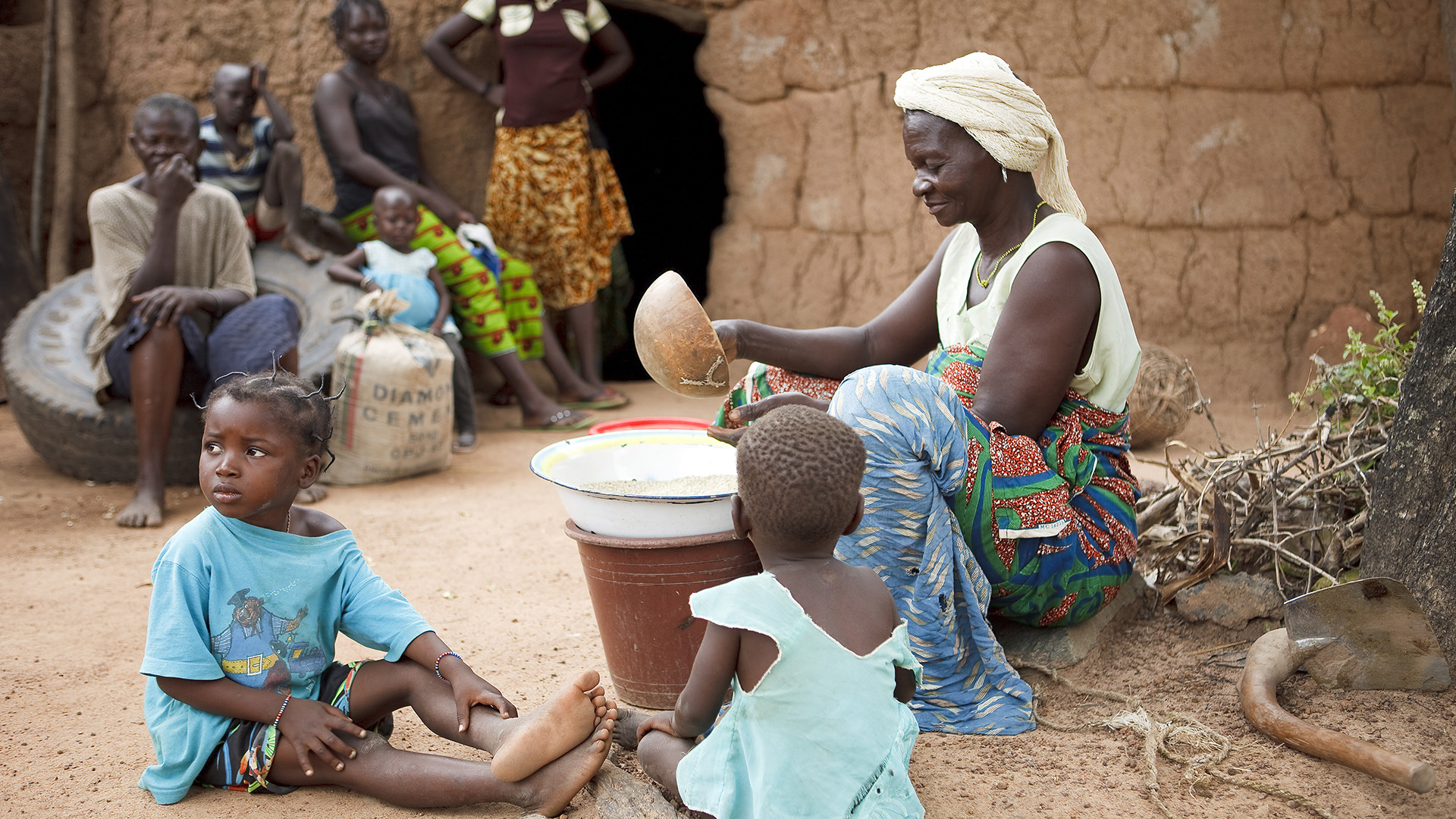Nutrition situation
Under five stunting (%)
24.9
Under five overweight (%)
1
Anaemia in women 15-49 years (%)
49.6
Under five wasting (%)
8.4
Low birth weight (%)
13.1
0 to 5-month-old exclusive breastfeeding (%)
55.8
Adolescent overweight (%)
Male: 4.8
/ Female: 10.2
Adult overweight (%)
Male: 16.1
/ Female: 29.2
Adult obesity (%)
Male: 2.6
/ Female: 8.1
Adult diabetes (%)
Male: 7.4
/ Female: 5.5
COVID-19 snapshot
The country has been relatively unaffected by the pandemic, with 2,451 cases and 65 deaths. The Government adopted a number of measures (eased since the end of April) that disrupted the food system. Nutrition was integrated into the national response with awareness-raising and continuity of services.
Institutional transformations 2019-2020
Bringing people together into a shared space for action
As a result of the high-level commitment to nutrition, new sectors (sport, civil service, communication, security and housing) have joined the multi-stakeholder platform and new organisations based in Burkina Faso are becoming more involved by participating in meetings and helping fund nutrition interventions. A joint programme to address chronic malnutrition (five United Nations organisations and government actors) has been launched in the east of the country.Ensuring a coherent policy and legal framework
Adoption of the 2020–2029 National Multisectoral Nutrition Policy and the 2020–2024 Multisectoral Strategic Nutrition Plan, including an advocacy and communication plan (estimates to be updated), supported by giving nutrition a more solid institutional grounding. Finalisation of the decree on the International Code of Marketing of Breastmilk Substitutes (two implementing decrees) and implementation of the presidential initiative and the “Stronger with breastmilk only” campaign.Aligning actions around common results
The Common Results Framework was defined and updated in a participatory manner, enabling each stakeholder to know its role. A monitoring and evaluation plan has been developed and is currently being validated. Capacity-building of leadership and functional capacities was organised for nutrition focal points and representatives of the general directorates for sectoral studies and statistics in the ministries involved in nutrition.Financial tracking and resource mobilisation
An assessment of nutrition interventions was conducted through the Multisectoral Strategic Nutrition Plan. A parliamentary advocacy workshop was held to exempt imported malnutrition prevention and treatment products and to increase budget allocations. The resource mobilisation round table scheduled for March could not take place due to the pandemic. A study on partner-funded monitoring is under way.2020-2021 Priorities
- Disseminate the National Multisectoral Nutrition Policy and operationalise the Multisectoral Strategic Nutrition Plan.
- Advocate to maintain nutrition as a national priority in the 2021–2025 National Socioeconomic Development Plan.
- Improve nutrition governance (grounding process and accountability mechanism).
- Improve resource mobilisation (including domestic budget).
- Improve emergency nutrition.
- Improve the nutritional information system.
Download

